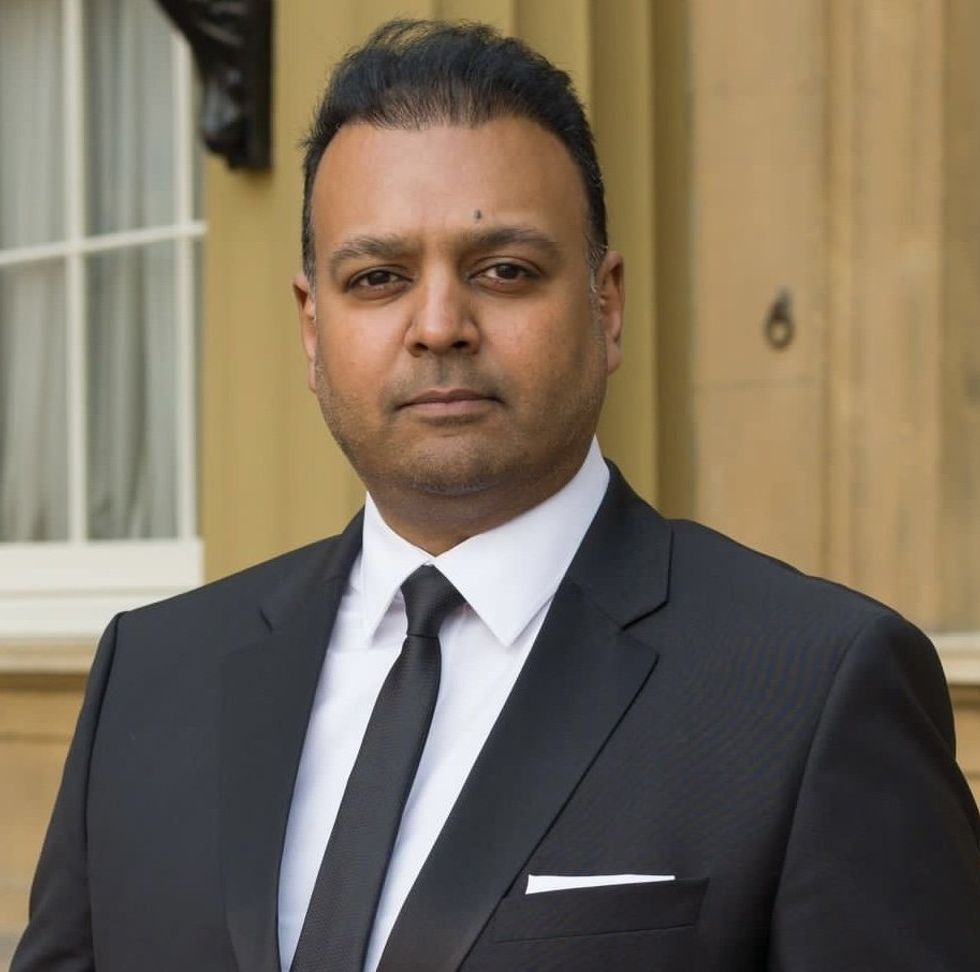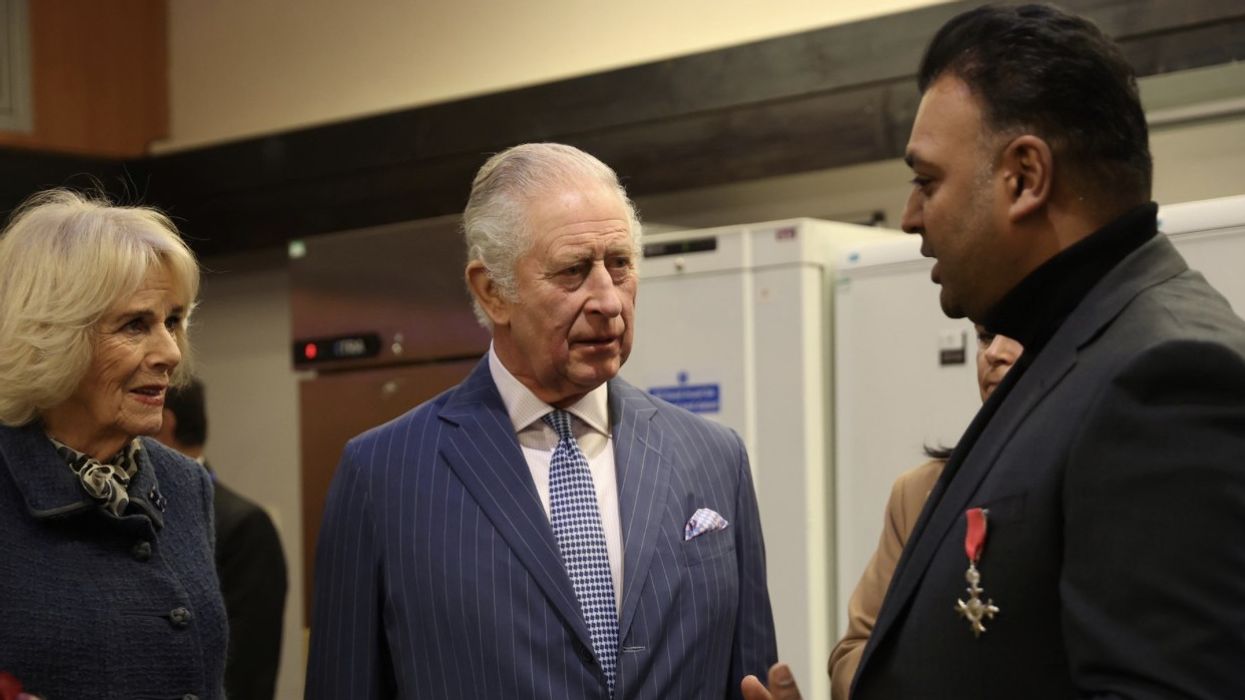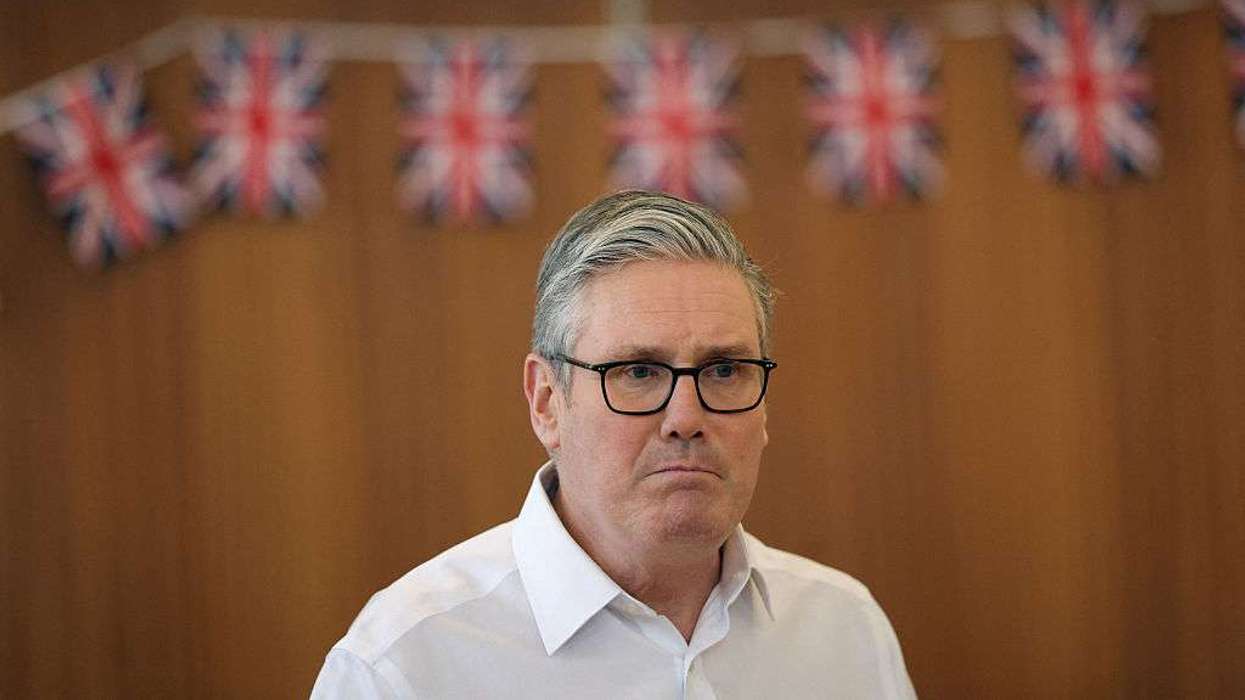Taz Khan MBE is the driving force behind London’s Community Kitchen (LCK), one of the UK’s largest initiatives tackling food waste and hunger. Each week, LCK supports over 15,000 people, redistributing surplus food to those who need it most. His impact has earned national recognition — including a landmark visit from His Majesty King Charles III, who met volunteers and saw the project’s transformative work in action.
Eastern Eye: Taz, what inspired you to start London’s Community Kitchen?
Taz Khan MBE: It all started in 2014- not in a boardroom, but on the streets. I saw people, everyday Londoners, slipping through the cracks. I realised we weren’t just dealing with poverty; we were witnessing a collapse in community support, policy foresight, and human dignity. London’s Community Kitchen was born out of necessity, to rescue good food from waste and redirect it to those who needed it most.
EE: You've seen the worst and best of our food system. What stands out most to you?
TK: The extremes. On one hand, I’ve met heroic volunteers and local businesses who give with heart and soul. On the other, I’ve seen supermarkets throw out edible food while parents nearby skip meals to feed their children. That’s the moral crisis we’re dealing with... it’s not just food poverty, it’s a dignity deficit.
EE: How serious is Britain’s dependence on imported food?
TK: Critically serious. In 1989, we produced 67% of our food. Today, we import 42%, including a staggering 84% of our fruit and nearly half our vegetables. That makes us dangerously vulnerable to global shocks, whether it’s floods in Spain or geopolitical unrest. And yet, we continue to sideline our farmers.
EE: So how do we fix this?
TK: We need nothing short of a radical overhaul. The government must stop treating food and farming as afterthoughts. Instead of subsidising land to rewild, we must support farmers to grow food; healthy, sustainable, homegrown food. Let’s set real targets for self-sufficiency, provide direct investment in production, and revitalise local food ecosystems.

EE: What about the role of supermarkets and food policy?
TK: Supermarkets are gatekeepers. They control choice, pricing, access. We need them to stock more British produce, not just what’s profitable, but what sustains communities. Junk food dominates our shelves and screens, while only one in four major UK food companies even has a health-based sales target. That’s unacceptable.
EE: For many, food poverty remains invisible. What does it really look like?
TK: It looks like your colleague skipping lunch, your neighbour quietly using a food bank, your child’s friend coming to school hungry. Poverty isn’t just homelessness... it lives among us. And food insecurity is not just about empty stomachs, it’s about lost dignity, choice, and security.
EE: How do community projects fit into this?
TK: They’re vital. Every allotment planted, every cooking class offered, every child taught how to grow something, that’s empowerment. Community-supported agriculture, local food hubs, direct-to-consumer farming; these rebuild resilience and reconnect people with the food they eat.
EE: Do you believe this is still fixable?
TK: Absolutely. But only if we act now. We can’t afford to keep sleepwalking into deeper dependence. Food is culture, identity, security. It’s time to stop taking it, and the people who grow and deliver it, for granted.




